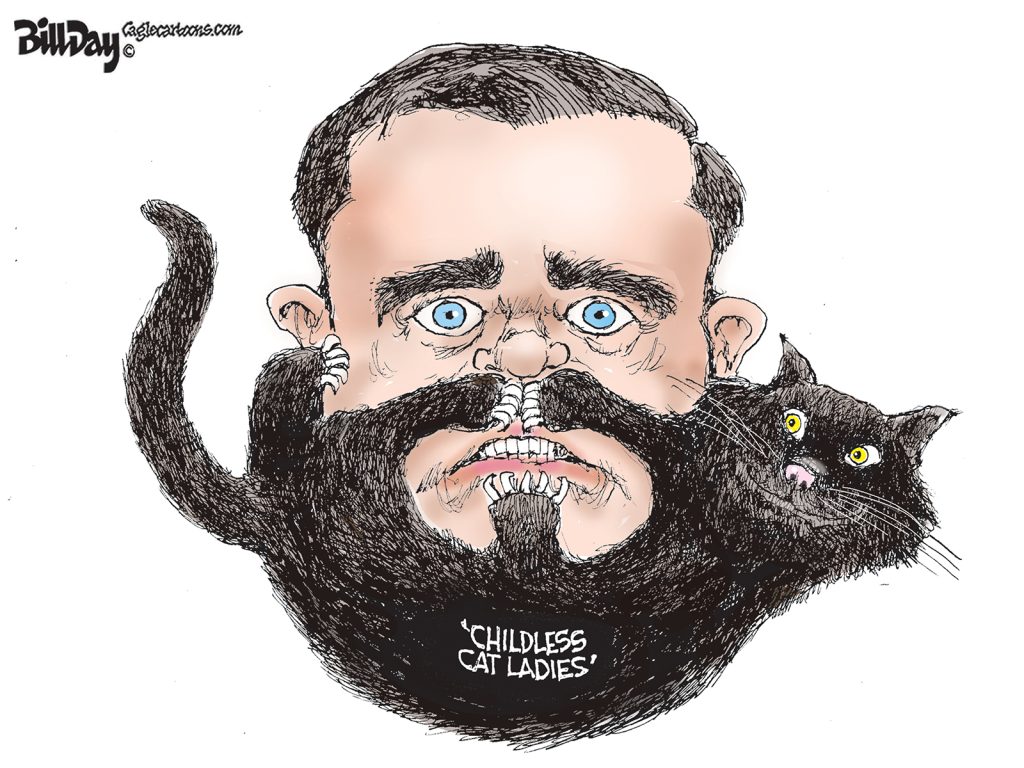Thumbnail: Allegations about a possible conflict of interest by Shelby County Commissioner Edmund Ford Jr. has resulted in a years-ago conflict at Memphis City Council involving him, Shelby County Mayor, and Council Attorney Allen Wade exploding into county government. It raises questions about whether the City Council’s attorney should represent county elected officials and embroil himself in county politics that include excoriating the county mayor.
**
From all appearances, the dispute between attorney Allan Wade and Shelby County Mayor Lee Harris is as much a grudge match as a disagreement about ethics.
It all began with an ethics issue involving Shelby County Commissioner Edmund Ford Jr. that was recently punctuated with a shot across the bow from Mr. Wade aimed at Mayor Harris.
It is an understatement to say it was a zealous response by Mr. Wade, but in fairness, if you ever need a defense attorney, you want him to zealously represent you, so whatever Commissioner Ford is paying him, he got his money’s worth and then some.
Mr. Ford has been accused of an ethical breech in marshaling a $450,000 grant for Junior Achievement through the board of commissioners and then in turn selling computers to the nonprofit organization. The commissioner said he stepped out of the room when the funding came up at the Commission meeting; however, The Commercial Appeal, which broke the story, reported that he did not formally recuse himself and had voted for it twice in committee.
Mr. Wade’s Responds
Mr. Wade’s fiery letter to Board of Commissioners Chairman Eddie Jones Jr. said: “We are investigating the propriety of Mayor Harris using the power of his office to attack his political adversaries. Our initial impressions are that Commissioner Ford may have a defamation claim against Mayor Harris’ special counsel, the Commercial Appeal and Otis Sanford of the Daily Memphian for their biased and sloppy reporting of this situation; but that is to be expected as incompetence is a hallmark of Mayor Harris’ administration.”
He added: “In sum, the timing and one-sided attacks by Mayor Harris’ special counsel, the Commercial Appeal and Otis Sanford of the Daily Memphian are suspicious and consistent with Mayor Harris’ intent to remove Commissioner Edmund Ford, Jr. from his chairmanship of the Commission’s budget committee before budget deliberations begin in early April, 2021. It is also uncharacteristic for the County’s chief legal officer to release evidence considered by Harris’ special counsel to the Commercial Appeal in December, 2020 while special counsel’s investigation was still underway.”
(Note: The Commercial Appeal reported that the county’s chief legal officer did not release any evidence to it.)
The special counsel appointed to review the matter, Attorney Brian Faughnan – whose practice concentrates on commercial litigation, ethics, and professional responsibility – concluded in a 15-page report to Shelby County Marlinee Iverson that Mr. Ford violated county ethics policies.
Going Forward
Following Mr. Faughnan’s report, the issue was then referred to Shelby County Attorney General Amy Weirich, who recused herself and the attorney general from the 17th District, Robert Carter, was chosen to review the issue.
Mr. Carter is chief prosecutor for Bedford, Lincoln, Marshall, and Moore Counties in Middle Tennessee south of Nashville. He was appointed by Governor Bill Haslam in 2012. The counties in the 17th district are largely white, rural, and Republican, and the four counties’ cumulative population is smaller than two county commissioners’ districts.
All in all, he seems a strange choice for an issue involving an African American, a Democrat, and an elected official from a highly urbanized political district.
Mr. Wade’s threats to sue Mr. Faughnan, The Commercial Appeal, and Otis Sanford of the Daily Memphian, were so personal in tone that it raised the prospect of a prior history. Mr. Faughnan was quoted in a 2009 article in which The Commercial Appeal suggested a possible conflict of interest by Mr. Wade. More about that later.
Mr. Wade’s letter suggested The Commercial Appeal coverage and Mr. Sanford’s opinion column were coordinated with the Harris Administration and complained about “their biased and sloppy reporting of this situation, but that is to be expected as incompetence is the hallmark of Mayor Harris’ administration.”
The Dots Don’t Connect
It’s a non sequitur to connect the Harris administration with news media coverage. And yet, stranger still is the notion that Mr. Ford has any grounds for defamation when it comes to the news media.
Commissioner Ford is clearly a public figure which in turn sets a high standard for libel to be proven. The unanimous Supreme Court ruling in New York Times Co. v. Sullivan held that public figures would have to prove that the media report was made with “actual malice,” or put another way, with knowledge that it was false and with reckless disregard for whether it was true or not.
More to the point, Otis Sanford is a columnist whose job it is to write columns that are by their nature his opinions. He acted completely within the professional standards of his profession and his position. The same thing can be said for The Commercial Appeal’s Katherine Burgess and Sarah Macaraeg. Their reporting on the controversy has reflected the core principles of journalism: accuracy, independence, fairness, impartiality, and accountability.
Mr. Wade also said he is “investigating the propriety of Mayor Harris using the power of his office to attack his political adversaries.” It doesn’t appear that the mayor was acting outside the power of his office. If this to become the new standard for elected officials (and we’re all for it), almost every politician in this community will plead guilty.
The political friction between Mr. Ford and Mr. Harris began when they both served as members of Memphis City Council and it has now been taken across Main Street to the Vasco A. Smith Jr. Administration Building where it has been a persistent distraction to the real work facing county government.
Bomb-throwing
Both men are guilty of having a short fuse with each other and accelerating their disagreements and that was especially true for Mr. Ford. Last year’s budget hearings became a flashpoint when much of the board of commissioners were upset with the mayor’s administration about the timing and dependability of the consolidated budget submitted by the mayor. It boiled over to the point that the commissioners talked about taking over the budget process which would be a violation of the charter.
Personal grievances between Commissioner Ford and Mayor Harris festered to the point that any hope of détente in order to get the budget completed was lost. It was certainly not the administration’s finest hour but it called for cooler heads to prevail rather than name-calling and upbraiding. That was not to be; the opportunity to wound Mr. Harris politically was too tempting.
Mr. Wade complained that the current controversy about Mr. Ford’s ethics is about the mayor trying to remove him from the budget committee.
While it is certainly within bounds for the mayor to express his opinions about Mr. Ford’s chairmanship to Commission Chairman Eddie Jones Jr., that should have been the extent of his involvement. Ultimately, the authority over committee appointments rests totally with Mr. Jones as chairman and he seems rightly to be disinclined to remove Mr. Ford pending Attorney General Carter’s decision.
The Mayor Responds
In response to Mr. Wade’s blitzkrieg, Mayor Harris’ office was calm and politically smart: “Mayor Harris has never had any conversations nor has he met with the special counsel hired to investigate an alleged quid pro quo against Commissioner Ford. Furthermore, Mayor Harris was not involved in any way in the decision to hire the special counsel. These are only allegations and everyone, including Mr. Ford, is entitled to the presumption of innocence. The Mayor plans to stay mission-focused on the work ahead, which includes advancing a series of ethical reforms that were already in the works, but that now seem even more urgent.”
It is also completely within the purview of the mayor to recommend ethics policies for county government. In fact, he could likely apply them to the departments of his administration by executive order but they work best when they are applied countywide. Whenever the ethics recommendations are made public, they need to avoid any hint that they are directed at a specific person but instead are general in approach and application.
Shelby County already has a code of ethics ordinance which has strong language about disclosure of personal interest in voting, general standards of conduct, acceptance of gifts and things of value, an ethics commission (which has been notably absent on this issue), and more. Enforcement has been on and off over the years and it’s sound policy to periodically review the code so Mayor Harris should not be chastised for taking a look at them.
The Beginning
The friction between Mr. Harris and Mr. Ford germinated in City Hall and now has come into full bloom in county government. Back when both were City Council members, they were regularly at odds as a result of different political and philosphical approaches and their very different personalities.
Mr. Ford is at his essence a political animal. He forges alliances, counts his votes, and develops and nurtures political loyalties. Mr. Harris is a different kind of politician. He wasn’t known for the back-slapping, deal-making that happened so often in City Hall. He was thoughtful, takes his time to each a decision, and was known for keeping his own counsel, which was sometimes interpreted as being aloof and difficult.
Into that mix was Mr. Wade, the City Council’s lawyer who had his own issues with Mr. Harris.
There are two kinds of attorneys who represent legislative bodies. There are the lawyers who wait to see what position they take with their votes and then determine if there is legal support for their decision. That’s generally the approach taken in Shelby County Government over the years.
Then there are attorneys who provide legal opinions in advance of or in the midst of the legislative debate, which often in turn drives the final outcome of an issue. That’s what happens at City Council, leading Mr. Wade to be referred to as the 14th Council member.
While it’s no violation of city government policy, there is something nonetheless unseemly about City Council’s attorney attacking the county mayor – even if it is as a private attorney. It gives the appearance that Council members approve of it or at the least see nothing particularly wrong with it. Then too, because Mr. Wade is at a center of power in City Hall, they may be reluctant to even express an opinion.
Some Context
This isn’t the first time Mr. Wade has taken a case against the county mayor. In December, 2017, he was hired to support the board of commissioners’ political battle with Shelby County Mayor Mark Luttrell about how to handle opioid distributors.
Chancellor Jim Kyle suggested that commissioners and the mayor should enter into mediation, but a majority of commissioners hired Mr. Wade instead. Back then too, it was a bad look, and that would also be the case if an assistant county attorney attacked the mayor of Memphis as part of his private legal capacity. Put simply, it’s all risk and little reward.
Mr. Wade has survived claims about conflicts of interest. In 2009, city government paid him almost $400,000 – and $1.2 million from 2006-2009 – as a result of Memphis Mayor Willie W. Herenton hiring him to also represent his administration in some court cases, one of which paid him $210 an hour and another $275 an hour. The Commercial Appeal raised questions about whether this was a conflict of interest.
Mr. Wade said it wasn’t a conflict to represent both branches of government and that he had a legal opinion approving it.
At that time, Mr. Faughnan, chairman of the Tennessee Bar Association Committee on ethics and professional conduct, cautioned that “things can get more complicated” if a CEO and a board of directors disagree on what’s best for the corporate entity if they have the same attorney. He was careful not to judge Mr. Wade’s case. Mr. Faughnan also represented The Commercial Appeal at the time.
Old Grievances
When the newspaper’s investigative reporter, Marc Perrusquia, asked Mr. Wade for a copy of the favorable conflict ruling from the Tennessee Board of Professional Responsibility, he refused on the grounds that it was confidential. When pressed, he told Mr. Perrusquia to go do his “hatchet job.”
This previous experience begs the question of whether it influenced Mr. Wade’s recent criticisms of Mr. Faughnan as special counsel and The Commercial Appeal. Back then, Mr. Sanford wrote a weekly column at The Commercial Appeal and was its editor for opinion and editorials.
In 2005, Councilman E. C. Jones said he was concerned because Mr. Wade represented City Council and prominent Memphis developer Rusty Hyneman at the same time. At other times, some have called for proposals to be solicited for legal representation for the Council.
He was hired in 1992 by City of Memphis for $92,000 a year to provide legal advice to the City Council after Mayor Herenton approved of the legislative body having its own lawyer in a change from long-standing city policy. City Council had never before had its own lawyer.
According to Memphis Business Journal, Mr. Wade’s base City Council salary today for the job is $105,621. It includes full health and retirement benefits for the parttime job. It’s unclear if he is still hired for outside work and if he is, what rate he is paid.
It is a testament to Mr. Wade’s skills that he has weathered all storms, stayed in the same City Council position for 29 years, and significantly increased his influence and impact in city government.
It’s hard to think of anyone who has survived as many changes in city government’s cast of characters and has only strengthened his position.
Perhaps, of all the politicians who have served in City Hall, he is the most skilled – although it’s not being shown when he enters into the politics of county government.
***
Join us at the Smart City Memphis Facebook page for daily articles, reports, and commentaries relevant to Memphis and Shelby County.





